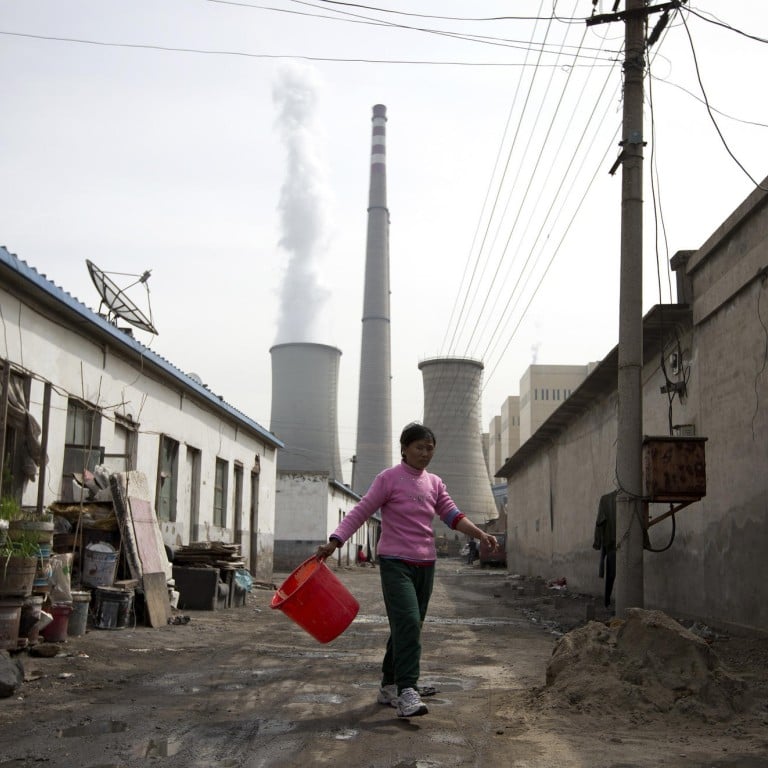
CRP shareholders set to reject CRG merger
Proposed union of mainland energy firms is unlikely to win investors' support because of a lack of details about new higher-risk ventures
A proposal to merge China Resources Power Holdings (CRP) and sister firm China Resources Gas Group (CRG) is unlikely to win CRP shareholders' support today, regardless of allegations of management negligence on a coal assets investment, analysts say.
That is because the merged entity plans to engage in higher-risk upstream natural gas resources exploration, production and processing projects, but has not given sufficient details about the new ventures to allay investors' concerns about their uncertain profitability.
Insufficient synergy - cost savings or enhanced earnings - from the merger is also a concern.
"The merger has always been unlikely to win shareholders' support; the events in the past week made it even less likely to succeed," said Michael Parker, a senior analyst at American brokerage Sanford C. Bernstein. "There is real uncertainty what CRP's strategy is."
CRP shareholders will vote on the merger today. No date has been set for a vote by CRG shareholders.
CRP is predominantly a coal-fired power generator which diversified into coal mining about five years ago. CRG is an urban natural gas distributor.
The proposed merger would see every 100 CRG shares exchanged into 97 newly issued CRP shares, after which CRG would be delisted.
Between last Wednesday and Friday, CRP's share price plunged 15.6 per cent to HK$16.86, after a whistle-blower accused CRP's directors on Wednesday of intentionally overvaluing an 80 per cent stake in three coal mines and some related assets in Shanxi province it bought in 2010.
CRG's share price fell 7.3 per cent to HK$19.18 over the three days.
Based on the last trading prices, CRP's offer to buy CRG is at a 14.8 per cent discount to CRG's market value, in contrast to a 12.77 per cent premium on May 9, the last closing price before the proposed merger was unveiled.
CRP has not adjusted its offer, making it unlikely that CRG's shareholders will accept it.
reporter Wang Wenzhi said on his microblog on Wednesday that a joint venture 49 per cent-controlled by CRP paid 7.9 billion yuan (HK$9.91 billion) for the stake, valuing the entire assets at 9.9 billion yuan.
He claimed the assets were valued at only 5.2 billion yuan by a potential buyer, state-owned coal miner Datong Coal Mining Group, just three months earlier. A Datong spokesman could not confirm the valuation on Friday, saying he needed more time to gather the facts.
CRP said on Thursday that the acquisition was arrived at after "arms' length negotiations" and it paid less than the valuation given by independent valuers. It said allegations of over-payment were based on "unsubstantiated information" and it reserved the right to take legal action against a party that released false information that hurt its reputation.
The Communist Party's anti-graft watchdog, the Central Commission for Discipline Inspection, has said it is processing Wang's complaint, while the State-owned Assets Supervision and Administration Commission said an audit was being conducted, state media reported.
Neither CRP nor CRG has warned their shareholders about any risk from the negligence allegations in relation to the merger.
Both have achieved good profit growth in the past few years, enjoy higher valuations in the stock market than their peers, and have no problems raising funds from the equity and bond markets.
They said the merged entity would aim to cut administrative expenses as a percentage of revenue to below 4 per cent by 2016 from 4.7 per cent between 2010 and last year and also aim to cut financing costs as a result of being a larger company.
The merged firm would seek to diversify into upstream gas production and midstream gas transportation, areas in which neither CRP nor CRG has any experience. They include the production of conventional natural gas and various forms of unconventional gas.
To allay fears about the risks, CRP said the merged firm would aim to maintain CRP's dividend payout policy, and it would limit the annual capital expenditure on the upstream businesses to no more than 10 per cent of its total spending from 2014 to 2016. It would also only pursue projects if their estimated return reached 15 to 18 per cent on capital invested.
Pierre Lau, head of Asia utilities research at Citi, said in a research note early this month that such statements were "unlikely to comfort investors" given the projects' estimated returns were based on long-term assumptions, and their investment risks were difficult to assess based on the information provided.
Approval for the merger requires votes representing more than 50 per cent of CRP's independent shareholders and more than 75 per cent of CRG's independent shareholders. The proposal will be rejected if more than 10 per cent of CRG's independent shareholders oppose it.

